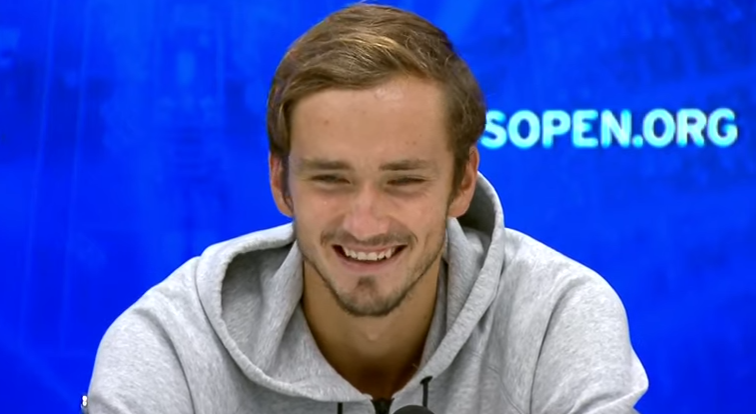Medvedev: «Cuando estaba en la cancha daba el 100%, pero fuera de ella no hacía lo correcto»

Daniil Medvedev, de 24 años, dio un increíble salto en su carrera en 2019: ganó dos títulos de Masters 1000, llegó a la final de un Grand Slam, debutó en las ATP Finals y entró por primera vez en el top 5. Pero, no todo fue fácil en sus primeros años. Todo porque su madre quería que estudiara y que no perdiera tanto tiempo con las raquetas.
“Siempre hubo una pequeña pelea entre mi padre y mi madre. Mi madre quería que estudiara más, por lo que estudié y jugué al mismo tiempo hasta los 18 años. En Rusia, la mayoría de los atletas profesionales terminan sus estudios alrededor de los 12 años. Puede que haya sido la razón por la que no fui tan bueno como mis amigos durante algún tiempo, pero no me arrepiento”, confesó en un largo texto para el blog ‘Behind the Racket’, un proyecto del joven tenista estadounidense Noah Rubin, que también tiene un podcast.
Medvedev, ahora en el quinto lugar del ranking mundial, dijo que las cosas al principio no fueron nada fáciles. “Hubo muchos momentos difíciles antes de que la federación y los patrocinadores ayudaran, cuando no había suficiente dinero. Hubo partidos en los que perdí y solo pensaba en los 100 dólares extra que podría ganar. El período más difícil para mí fue el cambio de juniores a profesionales. Me di cuenta muy rápidamente de lo difícil que sería pasar de 700 a 300 en el mundo”.
Medvedev asume que solo después de unos años en el top 100 mundial se sintió realmente como un profesional. “Incluso después de llegar al top 100 por primera vez, sabía que en el fondo no era un profesional. Cuando estaba en la cancha daba el 100%, pero fuera de ella no hacía lo correcto. Me acostaba tarde, jugaba durante horas PlayStation y no me preocupaba por las pequeñas cosas. Del 70 al top 5 del mundo fue el salto en el que realmente decidí dedicarlo todo al tenis. Quería encontrar finalmente mis límites. Sé que la gente dice que no hay ninguno, pero quiero ponerme a prueba y encontrar el mío. Ese fue el momento para mí”.
“I wanted to finally find my limits. I know people say there are none, but I want to test myself and find mine.”
Read full story at https://t.co/ZVQucQepU4 pic.twitter.com/AylNJKr5Vv
— Behind The Racquet (@BehindTRacquet) March 21, 2020
- Categorias:
- ATP World Tour
